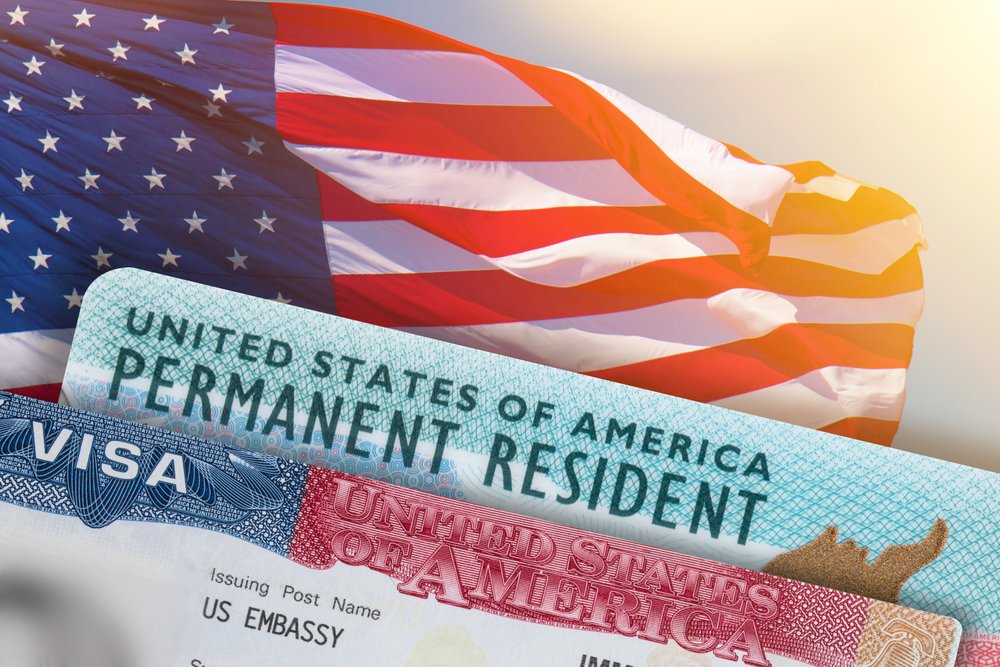In a world that often separates families by geographical boundaries, the United States of America offers a range of family visas that enable individuals to reunite with their loved ones and build a life together in the Land of Opportunity. Whether you are a U.S. citizen or a lawful permanent resident, this comprehensive guide will provide you with valuable information on the different types of family visas available in the USA, eligibility requirements, application processes, and the joyous journey of bringing loved ones together across borders.
Understanding USA Family Visas:
USA family visas are immigration visas designed to reunite families and facilitate the legal entry of foreign-born family members into the United States. These visas allow U.S. citizens and lawful permanent residents to sponsor their immediate family members, including spouses, children, parents, and siblings, for immigration purposes.
Types of USA Family Visas:
- IR-1/CR-1 Visa: The IR-1/CR-1 visa is intended for spouses of U.S. citizens or lawful permanent residents. It grants immediate relative status to the foreign-born spouse, providing them with a path to permanent residency upon entry into the United States.
- K-1 Visa: The K-1 visa, also known as the fiancé(e) visa, allows U.S. citizens to bring their foreign-born fiancé(e)s to the United States for the purpose of getting married. After marriage, the foreign-born spouse can apply for adjustment of status to obtain lawful permanent residency.
- F-2A/F-2B Visa: The F-2A visa is for the unmarried children (under 21 years old) of U.S. citizens, while the F-2B visa is for unmarried children (over 21 years old) of U.S. lawful permanent residents. These visas enable children to join their parents in the United States.
- IR-2/CR-2 Visa: The IR-2/CR-2 visa is for children of U.S. citizens or lawful permanent residents who are under the age of 21 and unmarried. This visa category allows children to join their parent(s) in the United States.
- IR-5 Visa: The IR-5 visa is for parents of U.S. citizens who are 21 years old or older. It enables parents to immigrate to the United States as immediate relatives of their U.S. citizen children.
Eligibility and Application Process:
- Determine your eligibility: To sponsor a family member for a USA family visa, you must be a U.S. citizen or a lawful permanent resident, and the relationship must fit within the eligible categories defined by immigration laws.
- File the petition: As the sponsoring family member, you must file the appropriate visa petition with U.S. Citizenship and Immigration Services (USCIS) to establish the relationship and initiate the immigration process.
- Provide supporting documentation: Gather the necessary documentation to support your visa petition, including proof of your citizenship or lawful permanent residency, proof of the qualifying relationship, and any other required supporting documents.
- Visa processing and interviews: After the petition is approved by USCIS, it will be forwarded to the National Visa Center (NVC) for visa processing. The NVC will notify you and your family member about the necessary fees, forms, and supporting documents required for the visa application. Your family member will then need to attend a visa interview at the U.S. embassy or consulate in their home country.
- Medical examinations and background checks: As part of the visa application process, your family member will undergo a medical examination and undergo background checks to ensure admissibility into the United States.
- Visa issuance and travel: If the visa application is approved, your family member will receive their visa, allowing them to travel to the United States. Upon entry, they will go through the immigration process at a U.S. port of entry and be granted lawful entry and status in the country.
USA VISA FOR PORTUGUESE CITIZENS
Key Considerations and Tips:
- Understand the financial responsibilities: As the sponsoring family member, it’s important to be aware of the financial obligations associated with sponsoring a family visa, such as providing financial support and signing an affidavit of support.
- Seek legal advice if necessary: If you encounter complexities or have concerns during the visa application process, consult an experienced immigration attorney to guide you through the process and ensure compliance with immigration laws.
- Maintain open communication: Throughout the process, maintain open communication with your family member and keep them informed about the progress of their visa application.
- Be patient and prepared: The visa application process can take time, so it’s important to be patient and prepared for potential delays or requests for additional documentation.
Conclusion:
USA family visas serve as a bridge that brings loved ones together across borders, allowing families to reunite and create a new chapter in the Land of Opportunity. By understanding the different types of family visas, meeting the eligibility requirements, and following the application process diligently, you can navigate the path to successfully sponsoring your family members for immigration to the United States. Remember to gather the necessary documentation, seek legal advice when needed, and stay informed about the process. With determination, patience, and the joy of reuniting with your loved ones, you can embark on a transformative journey of togetherness in the United States.
More articles: recifest



